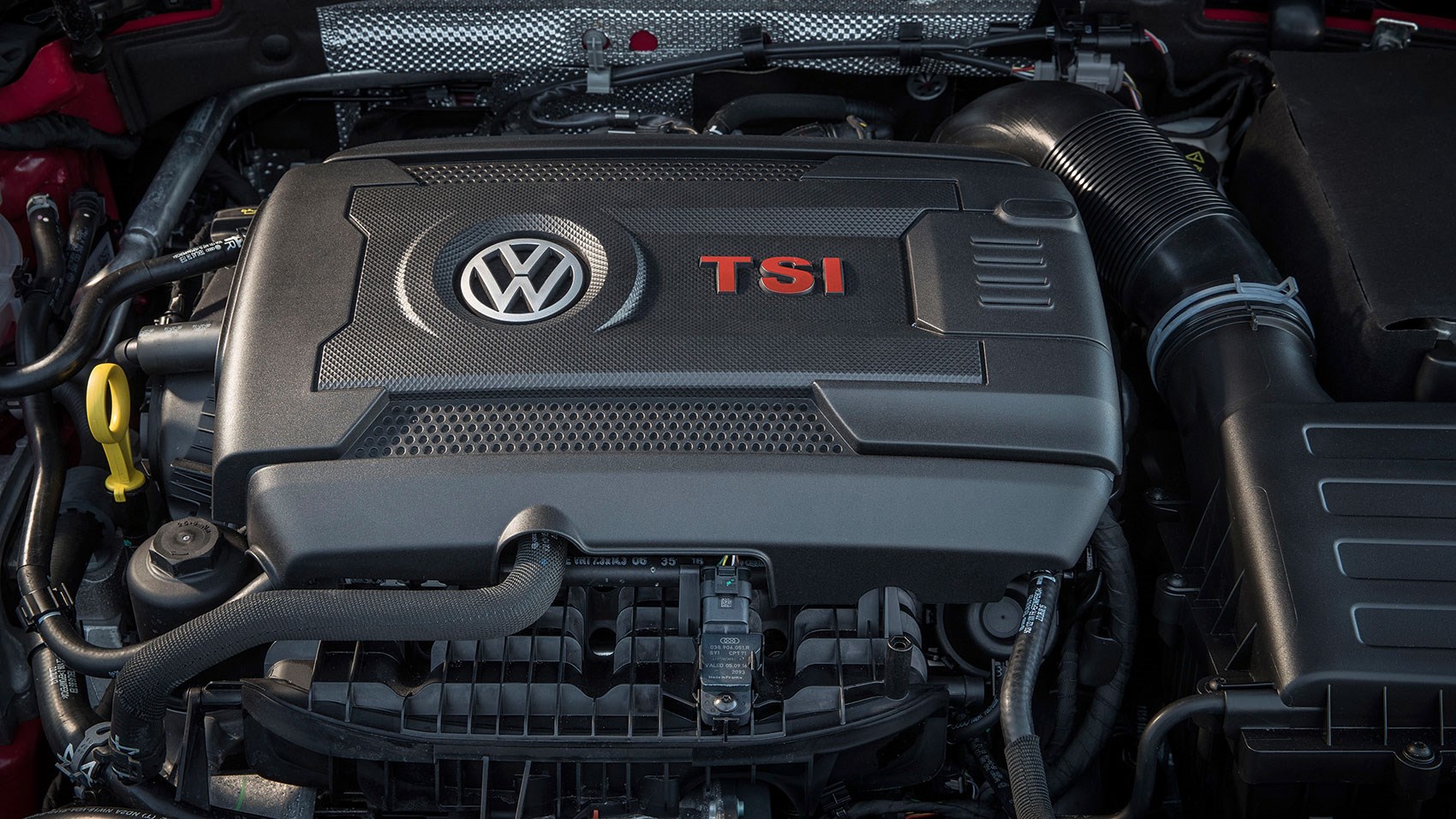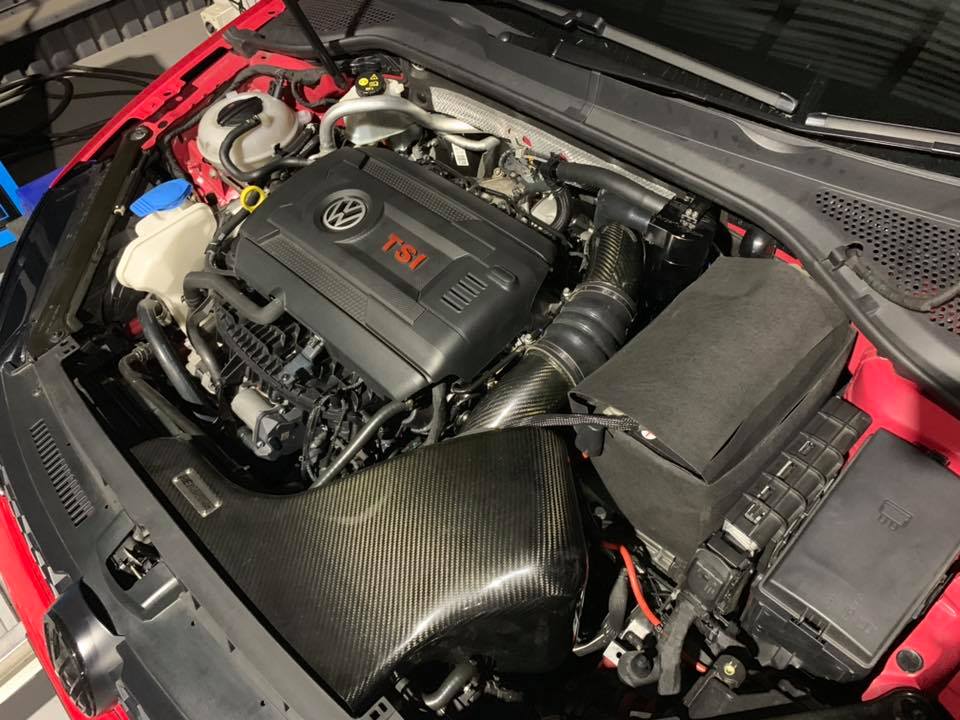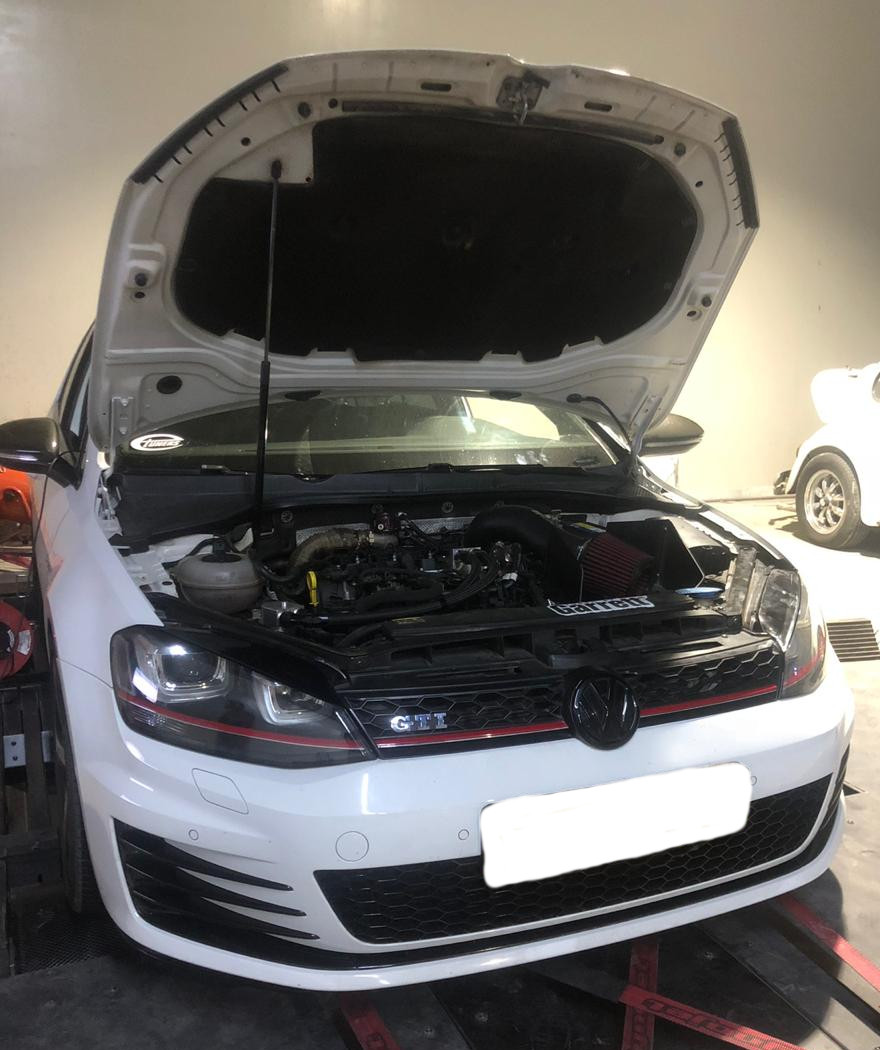How the Golf 7 GTI Engine Delivers Power and Efficiency for Enthusiasts
Your Guide to the Golf 7 GTI Engine: Reliability and Upgrades
The Golf 7 GTI, furnished with its 2.0-liter turbocharged inline-four engine, stands for an equilibrium of performance and dependability that attract fanatics and day-to-day drivers alike. Understanding the elements that contribute to its reliability, along with potential issues and their solutions, is important for optimizing the driving experience. Exploring various performance upgrades can significantly enhance both power and performance. Nonetheless, the inquiry stays: what specific upgrades can change your GTI into a genuinely phenomenal lorry while ensuring its long life?
Overview of the Golf 7 GTI Engine
The heart of the Golf 7 GTI is its 2.0-liter TSI engine, a turbocharged four-cylinder that delivers an impressive mix of power and effectiveness. This engine produces a durable 220 horsepower and 258 lb-ft of torque, permitting the car to increase from 0 to 60 miles per hour in just 5.6 seconds, showcasing its stylish character. The turbocharged style not only boosts performance yet also optimizes gas efficiency, making it a functional choice for day-to-day driving.
Incorporating innovative technology, the engine includes direct gas injection, which boosts combustion performance and reduces discharges. Additionally, the Golf 7 GTI is furnished with either a six-speed manual or a six-speed DSG dual-clutch transmission, supplying chauffeurs with the adaptability to choose their liked driving design. The car's front-wheel-drive design, incorporated with a well-tuned suspension, ensures active handling and a receptive driving experience.
Engine Reliability Aspects
Integrity is an important facet of any kind of performance-oriented vehicle, and the Golf 7 GTI's engine is no exception. A number of variables add to the general dependability of this very regarded powerplant, which is vital for both day-to-day driving and perky efficiency.
To Start With, the Golf 7 GTI is outfitted with a durable 2.0-liter turbocharged inline-four engine, recognized for its reliable layout and strong design. This engine includes a built steel crankshaft and light weight aluminum engine block, which give premium toughness and durability while reducing weight.
Secondly, normal upkeep plays an essential function in improving engine dependability. Complying with the manufacturer's recommended solution periods, using top notch lubes, and replacing essential components such as trigger filters and plugs can substantially extend engine life.
Furthermore, the top quality of gas utilized can additionally affect dependability. Premium gas is suggested to ensure optimum efficiency and reduce the risk of knocking or ignition.
Lastly, the lorry's electronic management system continually keeps track of engine parameters, permitting real-time modifications to optimize efficiency and performance while protecting against prospective issues. Jointly, these elements emphasize the Golf 7 GTI engine's credibility for integrity among lovers and daily motorists alike.
Common Problems and Solutions
The Golf 7 GTI, while celebrated for its performance, is not without its obstacles. Among one of the most frequently reported issues are engine oil intake and turbocharger failures, which can substantially impact automobile integrity. Comprehending these usual problems and their options is essential for keeping ideal engine efficiency.

Engine Oil Usage
While many fanatics appreciate the efficiency of the Golf 7 GTI, engine oil usage can become a remarkable issue. Proprietors may observe that their vehicles need even more frequent oil top-ups than expected, often connected to different variables fundamental in the engine's style and procedure.
One common problem is the engine's straight fuel injection system, which can cause boosted oil intake due to the combustion procedure. In addition, using high-performance driving routines can aggravate oil burn-off, particularly under aggressive throttle problems. Drivers may additionally experience oil leakages from seals and gaskets, which can contribute to decreased oil degrees.
To resolve oil consumption, regular maintenance is critical. Routine oil modifications utilizing high-grade artificial oil can help maintain optimal engine performance and durability. Keeping an eye on oil degrees and conducting prompt checks can prevent potential issues before they escalate. If excessive consumption persists, it may be recommended to get in touch with a professional technician to assess the engine for potential internal troubles, such as used piston rings or shutoff seals. Taking on these methods can substantially alleviate problems regarding oil consumption in the Golf 7 GTI, making certain a more enjoyable and reputable driving experience.
Turbocharger Failings
Turbocharger failures can dramatically impact the efficiency of the Golf 7 GTI, leading to diminished power and performance. Oil leaks commonly stem from used seals or damaged gaskets, which can lead to oil contamination and succeeding engine damages.
Another widespread problem is wastegate failure, which can cause overboost or underboost conditions. This not just influences the car's performance yet can also cause significant engine damage if left untreated. Updating to a more robust wastegate can improve integrity and efficiency.
Excessive shaft play indicates wear in the turbocharger's bearings, which can lead to a full turbo failing. Monitoring boost pressure and listening for unusual sounds can aid identify this problem early.
To avoid turbocharger failings, routine maintenance, consisting of oil adjustments and air filter substitutes, is crucial. Additionally, buying premium aftermarket elements might supply better integrity and efficiency, inevitably boosting the driving experience of the Golf 7 GTI.
Efficiency Upgrades to Take Into Consideration
What efficiency upgrades can genuinely boost the driving experience of a Golf 7 GTI? To let loose the complete capacity of this famous hot hatch, a number of targeted alterations can improve power, managing, and general driving pleasure.
One of the most effective upgrades is a high-performance turbocharger. Replacing the supply device with an aftermarket option can significantly increase horse power and torque, supplying an extra thrilling acceleration experience. Complementing this upgrade with a performance intercooler aids preserve ideal temperatures, making certain constant power delivery.
Following, consider updating the exhaust system. A less restrictive exhaust not only improves engine performance yet likewise produces a much more aggressive audio that magnifies the auto's flashy character. Combining this with a remapped ECU will maximize fuel delivery and ignition timing, more improving performance.
Suspension upgrades, such as flexible coilovers, can enhance dealing with by reducing the car's center of gravity and lowering body roll. In addition, a collection of high-performance tires will certainly enhance hold, permitting sharper cornering and visit our website enhanced general security.
With each other, click reference these upgrades can transform the Golf 7 GTI right into a much more vibrant and exhilarating driving machine, making every journey a memorable experience. golf 7 gti engine.
Suggested Upkeep Practices
Preserving the Golf 7 GTI engine requires interest to crucial practices that make certain optimum efficiency and longevity. Regular oil adjustments are necessary for engine wellness, while prompt timing belt substitute is vital to stop prospective failures. Implementing these maintenance methods will certainly help keep your lorry running efficiently and effectively.
Routine Oil Changes
Normal oil changes are crucial for the optimum efficiency and long life of the Golf 7 GTI's engine. Maintaining a consistent oil change routine makes sure that the engine operates smoothly and effectively. The advised period for oil changes is generally every 5,000 to 10,000 kilometers, depending on driving problems and the kind of oil utilized.
Utilizing top quality synthetic oil is vital as it offers exceptional lubrication and thermal security contrasted to conventional oils. This is specifically essential for the Golf 7 GTI, which features a turbocharged engine that creates greater operating temperatures. Normal oil adjustments aid to get rid of contaminants and sludge accumulation, which can compromise engine performance and cause early wear.
Additionally, fresh oil improves fuel efficiency and minimizes harmful exhausts, adding to a cleaner setting. During the oil adjustment process, it is additionally recommended to change the oil filter to make sure optimal filtering and avoid any debris from getting in the engine. Following these techniques not just aids keep the engine's honesty but additionally preserves the worth of the car, making regular oil transforms a crucial aspect of accountable GTI ownership.
Timing Belt Replacement
The timing belt is a vital component of the Golf 7 GTI's engine, in charge of integrating the turning of the crankshaft and camshaft. This synchronization is vital for ideal engine performance and efficiency. If the timing belt fails, it can cause tragic engine damages, making prompt replacement important.

When preparing a timing belt replacement, it is a good idea to additionally change the water pump and tensioner. These components work in combination with the timing belt and usually experience comparable wear, making certain ideal efficiency and durability. Using OEM parts is advised for their dependability and compatibility with the Golf 7 GTI's engine.
Professional installation is extremely motivated, as incorrect setup can result in extreme engine breakdowns. Normal maintenance of the timing belt not only shields the stability of the engine yet also enhances the overall driving experience of the Golf 7 GTI. golf 7 gti engine. Prioritizing this task helps maintain automobile integrity and performance over time
Aftermarket Parts and Modifications
Numerous enthusiasts transform to aftermarket modifications and parts to enhance the performance and aesthetics of the Golf 7 GTI. These upgrades can dramatically improve the car's responsiveness, handling, and general driving experience. Popular modifications consist of high-performance air consumptions, exhaust systems, and intercoolers, which can boost horse power and torque by enhancing air consumption and exhaust circulation.
Suspension upgrades are also prevalent, with alternatives varying from decreasing springtimes to completely adjustable coilover kits that boost adventure high quality and cornering capacity. Upgraded brakes, including performance pads and blades, can give better quiting power, ensuring security and control during perky driving.
Aesthetic adjustments, such as aftermarket wheels, body packages, and personalized illumination, allow owners to customize their vehicles while keeping a flashy appearance. Engine adjusting, whether with ECU remapping or standalone engine management systems, can open added performance potential, making the GTI a lot more thrilling to drive.
While aftermarket modifications can produce significant benefits, it's vital to pick respectable brand names and consider the possible effect on service warranty and reliability. Correct installation and adjusting are essential to guarantee the long life of the automobile while taking pleasure in the improvements.
Enhancing Fuel Performance
Improving fuel performance in the Golf 7 GTI can cause significant expense savings and a lowered environmental effect. Achieving better fuel economic climate needs a combination of driving habits, upkeep techniques, and tactical adjustments.
One reliable method is adopting a smooth driving design, staying clear of fast velocity and heavy braking, which can substantially reduce gas intake. Keeping ideal tire pressure is likewise critical; under-inflated tires can boost rolling resistance, bring about reduced performance. Routine servicing, consisting of engine tuning and air filter replacements, makes certain that the engine runs at peak performance, better improving fuel economic situation.
For those seeking upgrades, take into consideration a performance song that concentrates on efficiency instead of sheer power. Eco-mode setups, if available, can change throttle feedback and shift indicate make best use of fuel savings. In addition, lightweight aftermarket wheels can reduce weight and improve efficiency without jeopardizing performance.
Lastly, employing aerodynamic improvements, such as a front Get More Information splitter or rear looter, can decrease drag at higher rates, adding to better fuel economy. By carrying out these adjustments and methods, Golf 7 GTI owners can delight in boosted gas performance while maintaining the car's spirited driving qualities.
Final Thought
In verdict, the Golf 7 GTI engine exemplifies a blend of efficiency and integrity, driven by a well-engineered 2.0-liter turbocharged inline-four. Different efficiency upgrades and aftermarket alterations can improve driving experience while preserving stability.
The Golf 7 GTI, furnished with its 2.0-liter turbocharged inline-four engine, represents a balance of efficiency and dependability that allures to lovers and day-to-day chauffeurs alike. Regular oil modifications utilizing top quality artificial oil can assist maintain optimal engine performance and durability.Routine oil changes are important for the ideal performance and long life of the Golf 7 GTI's engine. Normal servicing, including engine tuning and air filter replacements, guarantees that the engine operates at peak efficiency, even more improving fuel economic situation.
